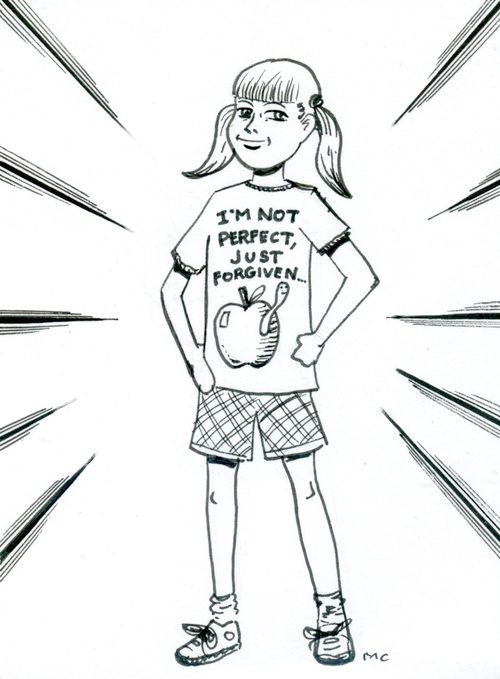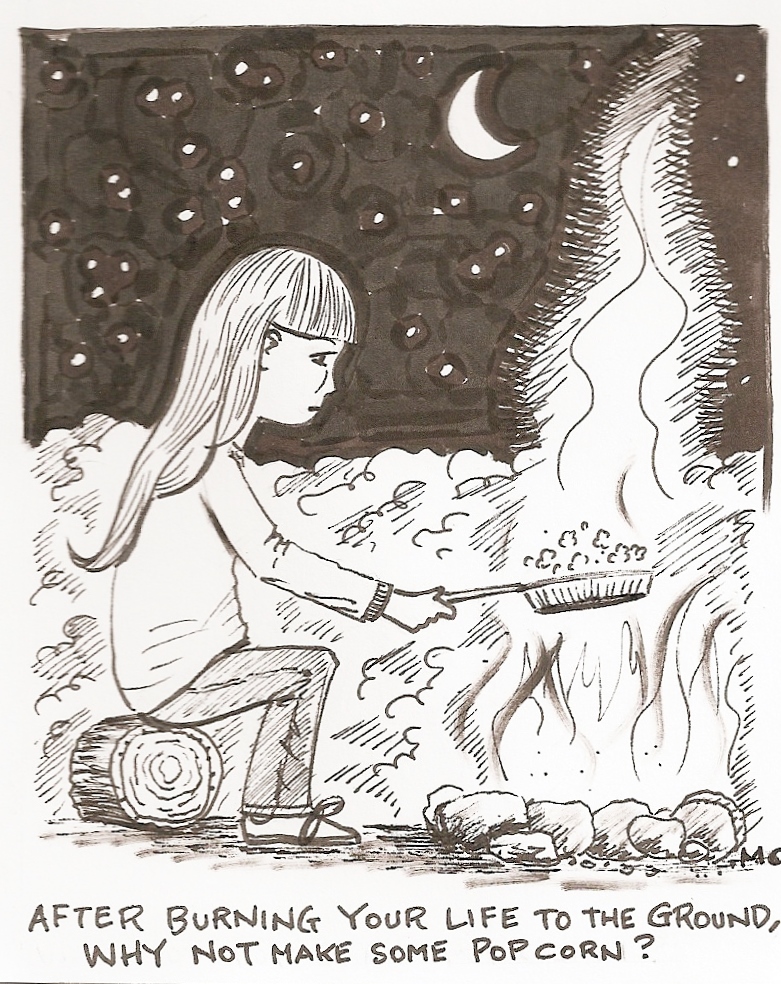My Un-conversion: On Being Lost & Found
In which I was lost but thought found, then found myself but was feared lost.
With lots of books and tacos along the way.
On Being Lost
I was born the year we
landed on the moon, but I grew up on another planet entirely. Sheltered in a
city nestled among Midwestern corn fields, I thought drinking wine was sinful
and listening to rock ‘n’ roll put you on a fast track to hell.
I’ll just go ahead and tell you: I was raised to be a particular kind of
Christian that’s fundamentalist, literalist, evangelical and earnest. No going
through the motions, no marginalizing your beliefs to a weekly church service,
no keeping your salvation to yourself, no wishy-washy backsliding, no skipping
church for sporting events, no eating out on Sundays.
Ours was the kind of philosophy that confined the occasionally appropriate
metaphor to English class and took the Bible for its words, including some
rather scientifically challenging interpretations of the plot, from the
creation of the world to its end.
My daytime education at a school run by a Baptist preacher was supplemented by church at least three times each week and personal Bible study and prayer time each day, as well as occasional prophecy conferences on weekends and missionary camps during summers. I learned more than your average Christian, studying church history, scriptural exegesis and the finer points of theology, including why our denomination was better than all the others, as hymns like “Onward Christian Soldiers” and “Just as I Am” auto-played in my head.
I thought Christians
were special but our kind of Christian was more special, and I regret to inform
you that I thought most of you out there in the world were going to hell. And I
do mean a fiery, eternal pit full of pain and suffering. I did feel bad about
where you were headed but, hey, I wasn’t God — I was just someone he probably
liked more than you. I took the teaching to heart, and then I took it to the
streets, witnessing with my mom in Iowa and with some missionaries in
Indonesia.
I went to a Christian college and carried those beliefs with me right into my
20s. That embarrassed me for a while, how long I believed it. But that’s what
happened. I was earnest, and I was one of them. My indoctrination was thorough,
and it worked.
Until I broke its spell.
Emily Dickinson wrote, “The trust must dazzle gradually / Or every man be blind.” That’s how it was for me. Slowly, I started seeing how limited and skewed my view of the world was. By then, I had started to move around the country to cities of increasing size, like I was lining up places by height for a picture I was about to take.
I went to grad school in Minneapolis-St. Paul, and the books I read helped change my mind. I started a writing job in San Francisco, and the people I got to know helped change my heart. I moved to Los Angeles and to Washington D.C. and to Nashville.
I left vestiges of my upbringing behind at each spot, first letting things fall to the wayside as if I didn’t notice and then shaking the rest off on purpose — with the kind of purpose that, if I were a medieval scribe hovering over my illuminated manuscript, I would emphasize with a capital “P.”
I didn’t travel the world sitting in ashrams or walking in the footsteps of medieval saints. I just made incremental changes as part of my non-exotic, workaday life. I went on a cover-to-cover pilgrimage with books. I got to know people and got to know the world.
I found medieval mystical poets like Hafiz and modern mystical chefs like Nigella Lawson. I didn’t understand what held the world together anymore – or my life – and everything around me fell apart. So I let it. I figured life likely no longer had meaning, but I had the ocean and museums and cute Japanese notebooks. All of my friends were gone, but the bookstore clerks always seemed nice, and Paris and Oaxaca were only plane rides away.
So yes, I lost my religion. But I found my soul. I no longer felt above the rest of the world, but I realized that was pretty much the point. I expanded my horizons both literally and metaphorically. Then I ended up someplace else entirely, where the metaphors are bigger than planets. I reclaimed my spirituality and built a life full of purpose and pleasure in equal measure.
On Being Found
If I emerged from fundamentalism,
anyone can. I know I’m not alone. Maybe not everyone was sent to a
Jesus-branded charm school (Oh, that’s another
story I want to tell you
– you’ll never look at a calorie chart the same way), but if you’re looking for
broader truths and hoping to find a higher plane than the “I’m right, you’re
wrong, good luck in hell” way of seeing the world, I’m here to tell you: the
air feels great out here.
For me, getting all the way out meant more than changing my belief system. It
meant uprooting those pesky underlying patterns that often haunt people years
after they’ve lingered in a pew. You know the patterns – the ones that cause an
angry Methodist to become an angry atheist or a dogmatic Baptist to become a
dogmatic environmentalist (or more often, that cause a Baptist to simply stay a
Baptist forever-and-ever-amen).
Herein lies a fistful of earnestness about how I reclaimed my life and my spirituality. It’s all the finger pointing I’ve got left in me, but it’s
pointing at a path out, not at the people along the way.
Here’s what happened:
- Instead of worrying about sin, I started wondering how I could help people on their own terms.
- Instead of being dogmatic, I became curious and understanding.
- Instead of thinking everyone else was wrong, I started appreciating them.
- Instead of working toward heaven, I occupied the present moment.
- Instead of approaching the world with an agenda, I hoped to spread peace and kindness naturally.
- Instead of having pre-fab answers, I opened myself to each experience and started responding spontaneously.
- Instead of buying into fear, I uncovered beauty in my own very particular way.
- Instead of looking to others for answers, I connected with my innate wisdom.
- Instead of passively awaiting God’s will and wishing reality away, I took responsibility for my life.
- Instead of awaiting judgment, I got busy becoming who I am.
- Instead of participating in a top-down hierarchy, I let the truths settle into my body and live there.
- Instead of dangling between heaven and hell, I wanted to embody my soul on Earth.
Resources
In case you’re also blinking in the light along with Emily Dickinson and me and would like some companionship or guidance:
Essays
- I mapped out a few of those stages in the Board Game-Style Guide to Losing Your Religion but Not Your Soul.
- I created some Merit Badges for Distinctive Acts of Badassery & Aplomb. Surely you've earned at least one by now!


